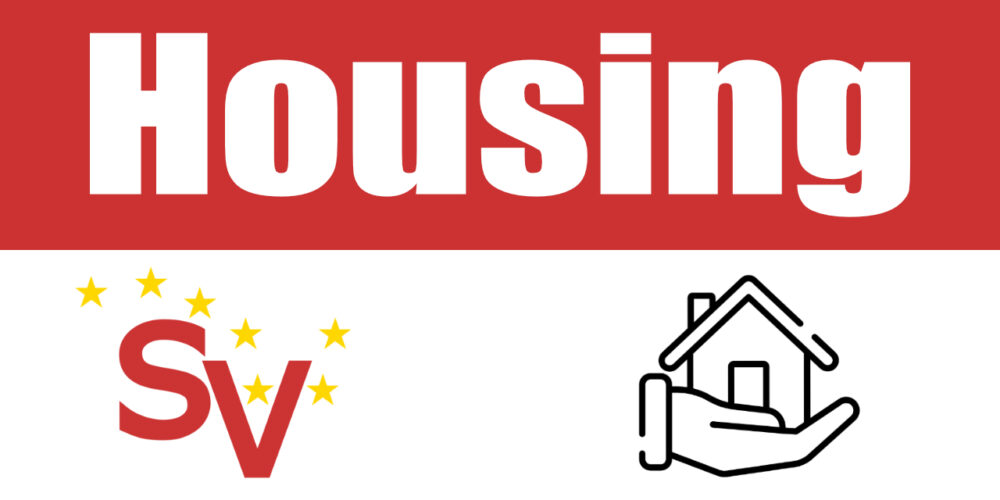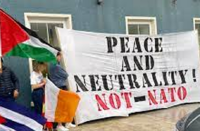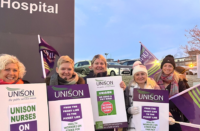As we begin a new year we remain static in the progress of society, entrapped in the system of capitalism.
2022 ended with many people from the Cost of Living Coalition taking part in a protest outside the Dáil on the 17th of December. The protest was against Leo Varadkar returning as taoiseach. While a symbolic change, the fundamental aim of the current Government is to protect landlords and the profits of capitalists. This aim is not new, nor is it unique: this has been the aim of capitalism for the past few centuries in all capitalist countries. However, through direct action by the workers, changes have been brought into the system in favour of the workers. These reforms have made it easier for workers to continue struggling for a better life without capitalism. This direct action can be seen throughout 2022.
Looking back to May, we saw the Revolutionary Housing League seize 12–14 Eden Quay, Dublin, naming it James Connolly House and putting it to use for the people, housing many homeless people and at least one refugee.
Since then the state has arbitrarily used its power to protect private property from RHL. Eighty armed gardaí raided James Connolly House, under the pretence that it would be used to house Ukrainian refugees. It remains empty, among the other buildings seized by RHL that have since been violently taken back by the state.
This protection of private property has allowed the growth of the homeless population and the wealth of landlords, the same landlords who preside in the Dáil.
But RHL are one part of the action taken by people in 2022. We saw the coming together of a considerable number of organisations in September. Thousands took part in a protest against the rising cost of living, marching from the Garden of Remembrance to the Dáil. This cost of living crisis, which the CPI has continuously and correctly referred to as the cost of capitalism or the crisis of capitalism, is brought about by the endless quest for profit.
We can see through the war in Ukraine, which led to sanctions on Russia, being a part of this crisis. The reduction in oil and natural gas supply has led to price-gouging, raising the cost of fuel, heating, and electricity. This is a conscious decision by those in power; and the protests that are taking place through the Cost of Living Coalition must take this momentum into the new year.
The other aspect of the cost of capitalism in Ireland has been enormous rent increases. This, however, is not brought about by foreign supply being reduced but rather by foreign investment in the Irish housing market. The lack of supply of housing, because of the selling off of public land to these private investors, creates an artificial scarcity. A lack of affordable houses on the market means that most people are forced to rent from landlords, who then raise rents beyond affordability.
While these rents continue to rise, and the landlords in government profit from the policies they make, people’s homes continue to crumble from mica and pyrite. The people whose homes are falling down around them demand government aid, but the government would rather profit from a shrinking housing market.
The main argument being pushed by those profiting from the crisis is that inflation is to blame. Those same people have made record profits, while real wages have dropped. Comrade Kumar’s article in December deals with the claim that increasing wages lead to inflation. If it is not the case that raising wages leads to inflation, then the obvious question is, Why hasn’t the minimum wage increased at the same rate as inflation?
If wages go up, then profits reduce at the same rate. The system of capitalism requires endless increases in profits; and the shareholders and those who support them in the Dáil will do everything in their power to protect those profits. The system of capitalism is the common denominator in every reason for the crisis we are spiralling further into.
We go into 2023 with Leo Varadkar back in as taoiseach, a man who said that there has been no history of class war in Ireland. The working class have constantly been fighting to better their lives; the 1913 Lockout and the 1970s rent strikes are just two examples from the last century.
Change does not come quickly or easily, and those movements we’ve seen over the past year will have to keep the momentum going through 2023 to bring real change to Ireland. The workers have the power to bring change.






